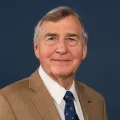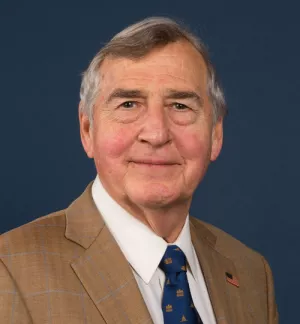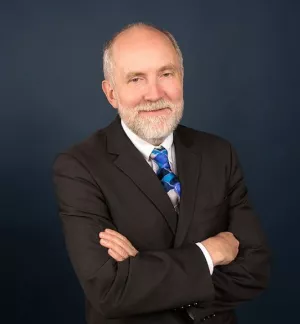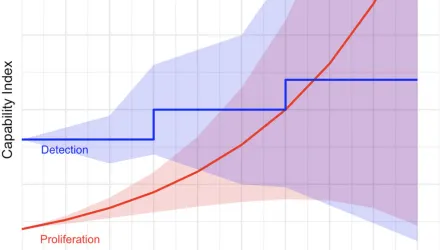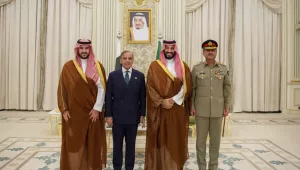An independent "Commission of Eminent Persons" chaired by former Mexican President Ernesto Zedillo has recently released a report on the future of the International Atomic Energy Agency. We served as Co-Executive Director and principal drafter for this Commission, whose members included Sam Nunn, Anne Lauvergeon (CEO of Areva), Rajagopala Chidambaram (father of the Indian nuclear bomb), Evgeny Velikhov from Russia, and other distinguished individuals.
The group concluded that meeting the current nuclear challenges and seizing the current opportunities will require a fundamentally reinvigorated global nuclear order, featuring a strengthened IAEA with "additional authority, resources, personnel, and technology." Without a "bold agenda" of steps to strengthen the nuclear order, the Commission warned that there were real risks that terrorists might get a nuclear bomb, that a nuclear accident might occur, or that, as the UN High-Level Panel warned, the world could suffer "a cascade of nuclear proliferation." Preventing such events, the Commission emphasized, is essential for nuclear energy to grow enough to contribute to mitigating climate change, making safety, security, and nonproliferation essential foundations for nuclear energy's future.
Specific steps the Commission recommended include:
- Strengthened safeguards. The Commission called for a wide range of steps to strengthen safeguards, urging that all states adopt the Additional Protocol, and ultimately that states agree to an "Additional Protocol Plus" allowing the IAEA to inspect sites related to nuclear material production technologies (such as centrifuge-making plants), giving the Agency the right to private interviews with key scientists, and more. The Commission argued that existing agreements should be interpreted to give the IAEA the authority to look for indicators of weaponization, and recommended establishing a qualified team for that purpose.
- Stringent global nuclear security standards. The Commission urged that "states should negotiate binding agreements that set effective global nuclear security standards," tough enough to ensure that every nuclear weapon and every cache of plutonium or HEU worldwide was reliably protected against the kinds of threats terrorists and criminals have shown they can pose. The Commission also called for giving the IAEA a mandate to confirm that those standards were being implemented, "within the constraints of necessary secrecy." The report recommends consolidating nuclear weapons and materials to the smallest practicable number of sites, converting or shutting down HEU-fueled research reactors, and ultimately phasing out civil use and all production of HEU.
- New nuclear safety standards. Similarly, the Commission emphasized the critical importance of stringent safety standards applied everywhere, and called on states to enter into binding agreements to implement effective safety measures and to allow international peer reviews of safety at all their nuclear power plants.
- New steps to control the fuel cycle. The group called on the IAEA Board to approve an international nuclear fuel bank without delay, and called for a continued push toward more multinational or international control of enrichment and reprocessing facilities, with the ultimate goal of bringing "the entire fuel cycle, including waste disposal, under multinational control, so that no one country has the exclusive capability to produce the material for nuclear weapons."
- Stopping black-market nuclear networks. The Commission called for greatly expanded international police and intelligence cooperation to stop black-market nuclear networks; a stepped-up effort to help states implement their UNSC 1540 obligations to put in place effective export controls, border controls, and transshipment controls, including having the IAEA develop model legislation that states could draw on; and beefing up the IAEA unit devoted to tracking black-market networks, giving it more resources and a broader mission, not just to inform IAEA safeguards but to help states "shut down these networks and find and fix leaks in their control systems."
- Broad steps toward nuclear disarmament. The Commission made the point that getting political support among non-nuclear-weapon states for new nonproliferation steps would require arms reduction progress, and called for a broad disarmament agenda in which "early steps" would include "deep reductions in existing arsenals; removal of all nuclear weapons from quick-launch alert; transparent security and accounting for, and reductions in tactical nuclear weapons; verifiable dismantling of excess nuclear weapons; secure and verified storage and disposition of all plutonium and HEU not required for remaining military purposes; ratification of the Comprehensive Test Ban Treaty; and a verifiable global treaty ending the production of nuclear materials for nuclear weapons."
- A major boost in the IAEA budget. The Commission made clear that with the amount of material under safeguards having increased more than 10-fold during a period in which the IAEA has largely been confined to a zero-real-growth budget, the IAEA needs more resources to do its current job — and would need still more to carry out the bigger mandate the Commission envisioned. The Commission called for a one-time €80 million ($124 million) increase to pay, among other things, for refurbishing the IAEA's safeguards lab and beefing up its emergency response center, coupled with increasing the €289 ($448 million) regular budget by roughly €50 million ($77.5 million) each year for several years (roughly 17% a year). By 2020, the Commission envisioned a doubled IAEA budget.
- Stepped-up support for nuclear energy and nuclear applications. The Commission called on the IAEA to expand its efforts to help states building nuclear reactors for the first time establish appropriate infrastructure to ensure that this will be done safely, securely, and peacefully. It encouraged the establishment of international waste repositories and fuel-leasing and reactor-leasing programs, so that every state using nuclear energy would not need its own waste repository. The group also called for an expansion of nuclear R&D, the establishment of multinational partnerships that would offer small, safe, and secure factory-built reactors with comprehensive fuel services to developing countries. Noting that most IAEA member states do not have a nuclear reactor and see help with nuclear applications as the main benefit of IAEA membership, the Commission also called for expanding the IAEA's technical cooperation budget, while refocusing it on applications that would have the most benefit for improving human well-being, and developing an exit strategy for each area of cooperation with each state — that is, a strategy for enabling the state to carry on without further assistance.
Director-General ElBaradei has scheduled an in-depth discussion of the report for the September Board of Governors meeting. Strong leadership from key member states — including the United States — will be essential if these recommendations are to be implemented.
Allison, Graham and Matthew Bunn. “Reinforcing the Global Nuclear Order: The Role of the IAEA.” June 13, 2008

